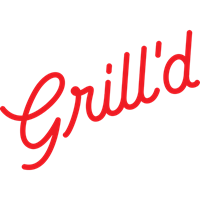
Content supplied by Fuel Your Life
Finals time for any athlete is one of the most exciting, stressful and meaningful times of the year. Players not only end up working much harder, having higher outputs than usual, but also no matter how professional, it is not uncommon for an athlete to suffer from increased nerves heading into finals more so than proceeding matches across the season.
This often comes with greater gastrointestinal discomfort (e.g. stomach pain/nausea/vomiting) and less of an ability to tolerate usual fuelling strategies for some players. These aspects are what makes finals nutrition different and factors that are often overlooked.
1. Timing of Pre-Match Meals and Snacks
General match day fuelling strategies involved a main pre-match meal consumed 2-4 hours prior to kick-off, with top-up snacks consumed once players arrive at the field and during warm-up.
However, this strategy may not suit players suffering from greater match day nerves due to the pressure of finals. You’ve probably seen players vomiting on the side lines during competition. Those finals day nerves often make it difficult for athletes to consume adequate fuel and keep it down.
Solution:
A Fuel Your Life Sports Dietitian may recommend moving the main pre-match meal towards the 4 hours prior to kick-off to allow for greater time for digestion and then recommend smaller top-up snacks 1-2 hours prior to the match, such as sips from a sports drink (e.g. Gatorade or Powerade), a few jelly snakes or red frogs or a water-based ice block to ensure the player has enough fuel on board to get through the full 90 minutes.
These high sugar, high energy, low fibre options will digest really quickly and prevent that “heaviness” that some athletes feel after eating before a match and fuel the muscles with what they need to sustain their physical efforts.
2. Type of Pre-Match Meals
Have you ever felt that feeling of butterflies in your stomach when faced with a nerve wracking situation? That’s one of the physical manifestations of mental stress and anxiety on the gut. When you feel anxious, how easy is it for you to stomach a solid meal? And then run around on a footy field for 90 mins?
While some players aren’t as affected by a nervy stomach as others on finals night and can follow similar nutrition strategies they would be used in any other match that season, many will need to alter the type of pre-match meal they are consuming to accommodate the reduced gastrointestinal tolerance that accompanies finals nerves as well as account for increase energy needs and greater fuelling demands associated with a finals match. And then there will be some players who always rock up to matches all season with minimal food or fluid consumed prior.
Solution:
Generally speaking, liquid meals can be much better tolerated and a Fuel Your Life Sports Dietitian may look to meet carbohydrate and fuelling needs with smoothies, flavoured milk, juices and similar, rather than a pasta or rice dish the athlete may have been able to tolerate without any drama in previous matches.
For those players who don’t usually eat or much on match day, starting to do this at finals isn’t going to be the best move. A Fuel Your Life Sports Dietitian certainly wouldn’t ever recommend not eating and drinking anything prior to a match, however if that player has been playing well all season and doing that, they shouldn’t change it just for a finals match. But we would highly recommend changing fuelling and hydration strategies for next season as we know they will see a dramatic increase in performance.
3. Additional Fuel and Fluid
The workload and exertion during a finals match is likely to be even greater than preceding matches of the season. Without additional fuelling and hydration strategies leading into the match as well as during half time, time to fatigue will be quicker and this is one of the main underlying reasons why so many players cramp in finals matches. Also, players with nervous stomachs are more prone to vomiting during play, which would require additional fuel and fluid heading into the second half of the match to ensure they are performing at their peak.
Solution:
Whilst players are encouraged to consume top up snacks and fluids during half-time for all matches, a Fuel Your Life Sports Dietitian will be recommending extra sports drinks (e.g. Gatorade or Powerade), jelly lollies, bananas and sports gels be consumed prior to match, and during the half-time break to meet increased fuelling and fluid needs associated with the greater workload of a finals match and minimise chances of muscle cramping into the second half. We would also recommend that players take more of the opportunities to hydrate with both sports drinks and water during stoppages of play in both halves of the match
4. Caution with Caffeine
Many players make use of the performance enhancing benefits that caffeine brings through consumption of coffees throughout the match day morning as well as things like caffeinated gels, tablets or energy drinks prior to kick off and during half time. However, is the same strategy appropriate for those with extra nerves on finals day?
Solution:
Whilst an appropriate caffeine dosing protocol does improve sporting performance with a decrease in perception of effort and fatigue, we also know caffeine can exacerbate anxiety and place extra stress on the gut. Players suffering from extra finals nerves may be best to avoid caffeine supplementation on the day or at the very least adjust dosages down, or extend the time of caffeine consumption out from kick off.
5. Supplement Strategies
Storm players have access to sports supplements under specific dosing protocols during the season but some require several weeks to see a benefit in performance, such as creatine monohydrate and beta-alanine.
Solution:
For players who have not been using sports supplements in the first half of the season or have not been dosing correctly, a Fuel Your Life Sports Dietitian will likely recommend loading up on creatine 4 weeks out from a finals match to assist with regulation of energy production to delay fatigue on the field with short, sharp, high intensity burst of activity that underpin rugby league. A Fuel Your Life Sports Dietitian may also recommend something like beta-alanine supplementation for certain athletes, starting 6 weeks out from finals to buffer waste products that accumulate in the muscle and cause fatigue during short high intensity efforts. This will also help to delay fatigue and may ultimately be the final 1% improvement in performance required for a team to score that last try and secure a win.
6. Rest
Stress from day-to-day training and matches across the season is cumulative on the body, which puts a player at greater risk of pulling up with an injury – which could mean a key player is either out due to injury for the finals match or is injured before half time during the final. Ultimately, if rest and recovery are not prioritised in the weeks leading up to finals, a team risks not being able to put the ideal starting line-up forward, ultimately which could cost them the Grand Final win.
Solution:
Whilst rest and recovery are important aspects of high performance throughout the season, players need to be even more mindful of prioritising at least 7-9 hours of good quality sleep each and every night heading into finals week. This would mean avoiding alcohol entirely as well as caffeine later in the day as both substances impair sleep quality. Coaching staff will also often rotate players off the field in several matches leading up to finals to rest them and ensure they are ready and able to perform at their peak come finals match.
Fuel Your Life is an award-winning nationwide company with dietitians available to clients in all areas of the country. For more tips, be sure to check out our Instagram page @fuelyourlifeaus, or to find your closest dietitian, get in touch with our team today via our website www.fuelyourlife.com.au.























